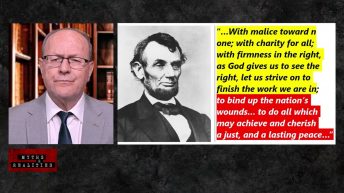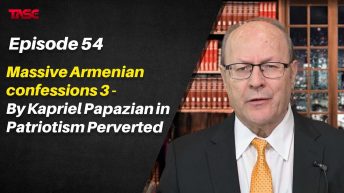In Episode 50, we have seen how Boghos Nubar, the head of the Armenian National Delegation at the Paris Peace Conference, revealed in letters to France (1918) and England (1919) that the Armenians were ‘de facto belligerents’ as they had fought alongside the Allies on all fronts. In Palestine and Syria, Nubar said, the Armenian volunteers played a significant role in the victory of General Allenby. And in the Caucasus, 150,000 Armenians in the Imperial Russian Army and more than 50,000 Ottoman-Armenian volunteers contributed to the Ottoman Empire’s loss of a significant portion of Eastern Anatolia.
There was no word about the claim of systematic extermination by the Ottomans. This amounts to a massive Armenian confession that the Armenian suffering was not due to a systematic extermination campaign by the Ottoman government, as deceptively claimed, but due to the treasonable acts of most Ottoman-Armenians as revolts, terrorism, treason, and territorial demands. It was a wartime military measure taken to mitigate a wartime military threat, purely in defense of the Turkish homeland. In Episodes 51 and 52, I have explored with you another major Armenian confession, that of the first prime minister of Armenia in the book “The Armenian Revolutionary Federation Has Nothing To Do Any More, The Manifesto of Hovannes Katchznouni. This book was translated into English by Matthew A. Callender, edited by John Roy Carlson, and published in 1955 by the Armenian Information Service in New York. In this book, Katchznouni related that Armenians were sure that the war would end with the complete victory of the Allies; Turkey would be defeated and dismembered, and its Armenian population would be liberated.
He confessed that the struggle that had begun decades before 1915 against the Turkish government brought about the deportation of the Armenian people in Turkey, which is what I pointed out all along. Katchznouni’s 1923 conclusion is supported by Louise Nalbandian’s 1963 book The Armenian Revolutionary Movement, pages 67-89. The Zeitun Rebellion of 1862 was the beginning of massive uprisings directed against the Ottoman government. After establishing many secret and violent societies like the Union of Salvation, the Black Cross Society, the Protectors of The Fatherland, the Armenakan Party, the Hunchaks, and the Dashnaks, and staging hundreds of bloody uprisings, assassinations, raids, bombings, and finally joining the invading enemy armies, Armenians sealed their fate. Turks only reacted to defend their home. Then in Episode 54, I analyzed the third massive confession, the one by the Armenian author Kapriel Serope Papazian in his book “Patriotism Perverted.” This 79-page book, published by Baikar Press in Boston in 1934, revealed the hate crimes of the ARF, the Armenian Revolutionary Federation, or Dashnakzoutune, and is dedicated to the Armenian victims of Dashnak terrorism.
Its significance is in its remarkable ability to educate the readers that the Armenian community is not- and has never been- a Monoblock, the homogeneous society of poor, starving, innocent angels brutalized by those bad Turks. This black-and-white, simplistic perception cultivated in the media and ingrained in public minds is obliterated by this book. Papazian’s book exposes the true nature of the ARF members, or Dashnaks, as murderous ones who have caused much destruction to those whom the ARF has regarded as ARF’s enemies, as well as the Armenian people themselves. In Episode 54, I explored with you perhaps the most serious of the Armenian confessions of hate crimes and war crimes, the one by the ARF itself, in the book called Houshamatyan of the Armenian Revolutionary Federation, Centennial, Volume I, Epic Battles, 1890-1914, published in Glendale in 2006. Epic battles?
Whatever happened to loyal, unarmed, non-combatant, angelic Christian subjects of the Ottoman Empire? How can any group of loyal citizens fight epic battles with a host country? And still be considered loyal, unarmed, non-combatant, angelic subjects of that host countrfy? A little critical thinking here will go a long way in seeking the truth. The Houshamatyan book is dedicated to the Armenian youth with fighting words, which may explain why Armenian terrorists since 1975 have always been impressionable young men. Armenian Diaspora sowed hatred and harvested terrorism.




Add comment